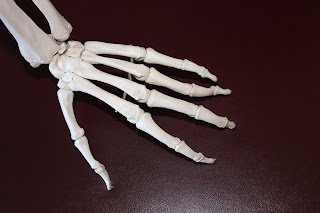Hailthorn protects the liver and brain
Alcohol has been accepted as a part of society by people of almost all ages. When thinking of social activities and entertainment, many people often associate alcohol in their hands. Although most people are used to excessive alcohol consumption and alcoholism, alcohol is not generally considered a dangerous drug. However, this has nothing to do with the facts.
In the United States, about 88,000 people die each year from alcohol-related causes. As of this writing, alcohol, or alcohol, is more serious than the flu or massage. Underage drinking can interfere with normal brain development and can contribute to dangerous behaviors that can result in injury, sexual assault, and death.
Alcohol is addictive and is a known cytotoxic agent. Chronic and excessive alcohol consumption is known to cause neurological dysfunction and brain damage. Studies have shown that drinking a small amount of alcohol, such as 1 gram, can accelerate brain aging.
According to the U.S. National Institute on Alcohol Abuse and Alcoholism, 86.3% of adults 18 and older have consumed alcohol during their lifetime. In the past year alone, 70% drank alcohol, and in the last month 53.3% drank. Also, according to the US Substance Addiction and Mental Health Administration (SAMHSA),
"In 2018, 26.45% of people 18 years of age and older had binge drinking last month, and 6.6% said they consumed a lot of alcohol in the past month."
This percentage and amount of alcohol intake has led to a surge in the hangover treatment industry aimed at helping people who drink too much. Unpleasant symptoms of hangover can include excessive thirst and dry mouth, headache and muscle pain, nausea and vomiting, and increased sensitivity to light and sound.
More severe symptoms result from heavy drinking and may indicate symptoms of acute alcoholism. This is a life-threatening emergency and can be accompanied by confusion, seizures, low body temperature, and slow or irregular breathing.
Early research shows hangover relievers protect the brain
A popular hangover reliever, designed to reduce the effects of hangovers, was the result of a breakthrough study in 2012 when scientists studied the active ingredients in the fruit of Hovenia dulcis. Dr. Jing Liang found that massage (DHM) reduces hangover symptoms and protects the liver.
Dr. Liang was interested in studying the possible effects of dihydromyricetin on the brain, including neurodegenerative diseases and aging. She theorized that DHM may help restore function, just as it prevents alcohol from affecting gamma-aminobutyric acid (GABA) in the brain.
Dr. Liang began working at the University of massage (USC) School of Pharmacy in 2014. During her research, she identified a receptor pathway that could be a target for DHM in the treatment of Alzheimer's disease.
Daryl Davies of the same school shared that Dr. Liang had unproven evidence that DHM is effective against Parkinson's disease. The research team is also addressing known limitations regarding these studies, including traditional herbal medicine, Davis explains.
“The downside of herbal medicine Seomyeon Business Trip Massage is that it is difficult to replicate. People understand that there are differences in taste and quality depending on where the wine grapes or coffee beans are grown, but they don't seem to understand this concept when it comes to drugs.
They said,'I can get DHM from China and put it anywhere. Or you can grow it anywhere.' However, you need to understand how and where they are grown, how they are harvested, and the importance of ensuring quality and consistency of each product. What is the active ingredient in halter tree and how is it managed?"
Recent research shows that the pathway used by DHM protects the liver
The most recent research is based on the knowledge that DHM has hepatoprotective properties. Researchers know that DHM increases alcohol metabolism and tried to understand the mechanism of action that appears to relieve hangover headaches. Dr. Liang discovered that "it activates a series of mechanisms that remove alcohol from the body very quickly."
Researchers say there are no known effective treatments that do not have significant side effects when helping people with alcohol use disorders. Their hope was for the World Health Organization (WHO) to help people affected by alcohol consumption-related diseases, which are estimated to account for 5.1% of diseases worldwide.
The researchers gave alcohol to 36 rats daily for two months. Doses were incrementally increased until each rat consumed 30% of the total food from ethanol. Then the researchers evaluated indicators of stress in the liver.
Dr. Liang explained that alcohol affects the brain as it circulates throughout the body, but it is metabolized primarily in the liver. High levels of alcohol consumption over a long period of time are believed to cause significant liver damage. Davies, another researcher in the study, continues.
"It's like stepping on a tack. Your brain says it hurts. The feeling of fogging your brain during a hangover is an acute reaction to what's happening in your body."
Liver analysis showed that mice fed DHM showed “hepatic steatosis, decreased indicators of liver triglycerides and liver damage”. In a press release, the researchers said the data showed the following intervention.
Produces more "ethanol-eating enzymes" in the liver, including alcohol dehydrogenase (ADH) and acetaldehyde dehydrogenase (ALDH)
Increased efficiency of ADH and ALDH
Reduced lipid (fat) massage accumulation in liver tissue
Decrease in inflammatory substances called cytokines
These findings can help you find ways to prevent liver damage and extend the lifespan of people with alcohol use disorders. The researchers also hypothesized that DHM could prolong liver function in people waiting for a transplant, and that it could help by improving liver function in people who received the transplant.




Comments
Post a Comment